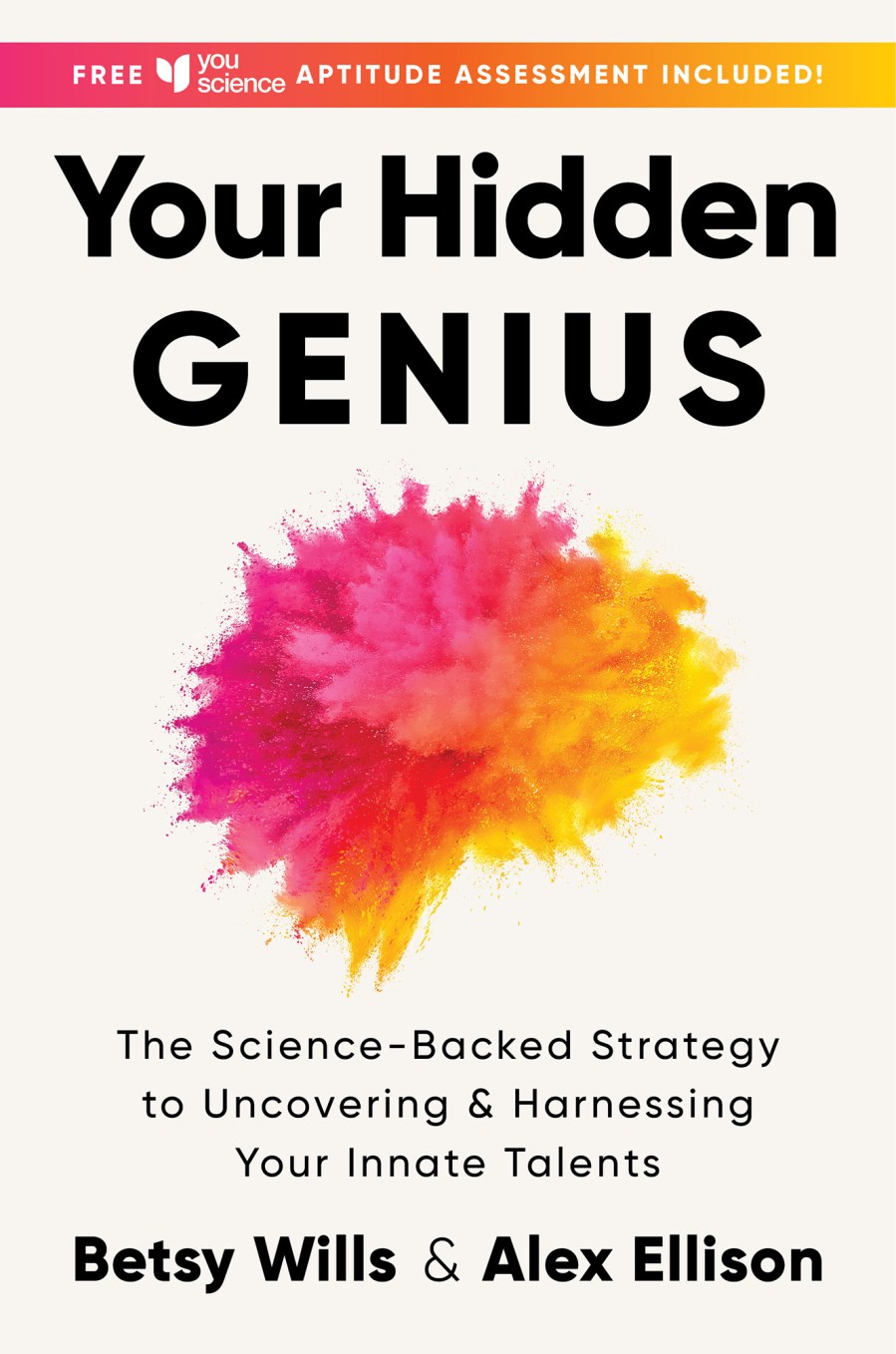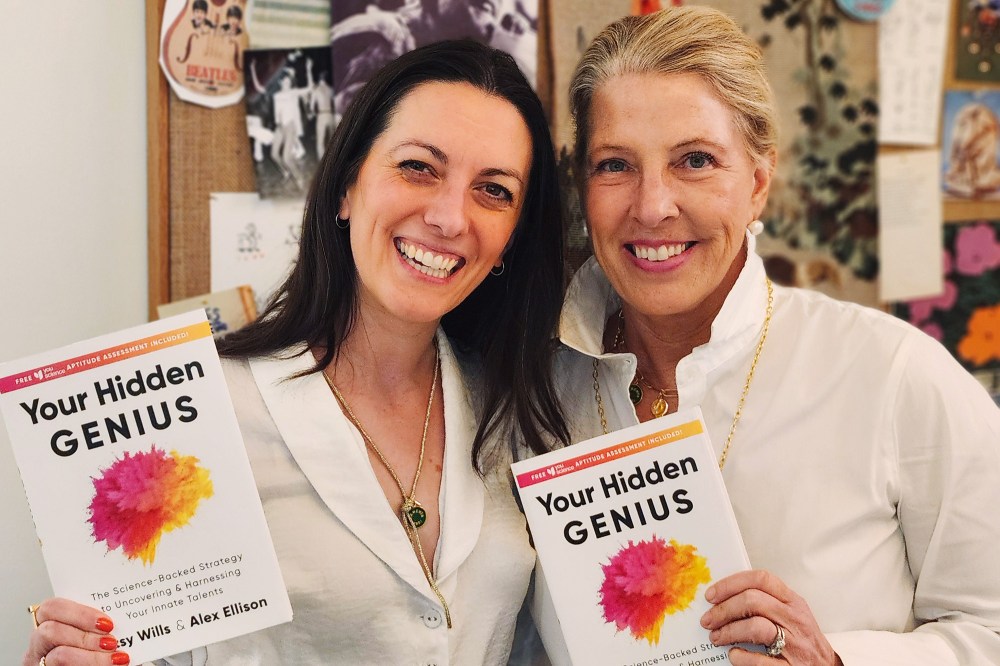If you’ve ever experienced professional burnout or wondered if you’re on the right career path, there may be a surprisingly simple way to find out. And it all comes down to science.

According to aptitude scientist Betsy Wills and expert career coach Alex Ellison, traditional approaches to career guidance and workplace success have largely failed women, due to social messaging and ingrained, gendered attitudes about their scope of professional possibilities. The result? Raw talent is left on the table and burnout sets in.
In fact, while women have reported higher levels of burnout for years, the professional gender gap has only increased since the pandemic, with nearly one in four women feeling job burnout, according to Deloitte.
That’s why Wills — who co-founded the aptitude assessment platform YouScience — and Ellison teamed up to write a career guide focused on helping women discover their greatest potential, “Your Hidden Genius: The Science-backed Strategy to Uncovering and Harnessing Your Innate Talents.”
They designed their research as a roadmap for readers identify their own unique combination of natural talents, interests and personality traits, which are then used to uncover hidden capabilities, transition careers and even combat burnout.

“My background spans corporate leadership, investing, nonprofit work, and career consulting, and I’ve seen firsthand how people thrive when aligned with their natural strengths,” Wills recently told Know Your Value. “We wrote the book to close that gap and to help people, especially women, align with careers where they’ll thrive.”
Wills and Ellison start with assessing what they call the “Core Four” aptitudes: spatial visualization, idea generation, inductive reasoning, and sequential reasoning. These four aptitudes shape how individuals work and think.
Once those natural strengths are identified, the book lays out various case studies, first-person accounts and expert advice for aligning professional aspirations with those unique talents, building confidence along the way through self-awareness.
“People are hungry for better answers,” Ellison told Know Your Value. “College costs are skyrocketing, burnout is at an all-time high, and career paths are more fluid than ever. It’s time we stop asking, ‘What do you like?’ and start asking, ‘What are you built to do?’”
Wills and Ellison shared more of their findings and lessons from the book, as well as how women can make the most of their innate talents across industries to close the professional gender gap for good.
Below is the conversation, which has been edited for brevity and clarity:
Know Your Value: Talk about what prompted this partnership to write a book together.
Wills: As a woman returning to the workforce after a hiatus as a stay-at-home mom, I first encountered aptitude assessments at Johnson O’Connor Research Foundation.
Why taking a career pause to raise your kid could help your long-term success
That experience was a game-changer but prohibitively expensive. Ultimately this led me to co-found YouScience, a company that democratized access to these assessments by making them far more affordable and available online. Today, YouScience is used in over 25 percent of U.S. high schools and more than 600 universities and colleges.
But one group was still missing — working adults.
Alex has been the ideal writing partner because her work with people early in their career complemented my own experience with mid-career professionals … [Now] career guidance is finally catching up with the data-driven insights we expect in other areas of life.
Ellison: Throughout my career, I’ve worked with teens and young adults, guiding them through pivotal decisions like selecting majors and embarking on career paths. Time and again, I observed them making these life-altering choices based on interests, family expectations, or what simply sounded appealing, but they didn’t have the data to back up those choices.
This is where aptitude assessments became transformative. I began using aptitude assessments in every new client intake. When clients received scientific insights into how they think and solve problems, their decision-making became more confident, strategic, and — most importantly — aligned with their true selves. YouScience changed how I counsel young people.
Know Your Value: Tell us more about your assessment process. How is it different from other career assessment tools?
Wills/Ellison: Do you remember taking one of those career surveys in high school or college? The ones that told you to be a florist, an air-traffic controller, or a dolphin trainer? Most of us laughed them off because the results felt generic, obvious, or just plain bizarre.
Here’s the real problem: Career guidance has been stuck in the stone age.
For decades, we’ve relied on interest surveys to steer career choices. The flaw? Interests change. What really matters is how you think, solve problems and process information. The only reason career guidance wasn’t based on that before is that technology hadn’t caught up yet.
Women have historically shunned power in the workplace. Here’s how to change that – for good.
That’s what we explore in this book. Modern aptitude assessments don’t just ask what you like — they measure how your brain works. Instead of multiple-choice questions, you complete a series of game-like exercises that test your ability to recognize patterns, process visual information, and solve logic puzzles.
You don’t study for them, and you can’t game them — because they’re not testing what you’ve learned. They’re revealing what you’re wired to do.
We introduce readers to aptitudes that have quietly shaped their decisions for years — whether they realize it or not. More importantly, we show how aligning careers with aptitudes leads to better decisions, more fulfilling work and fewer career missteps.
For the first time, we have the data to guide careers the way we guide medicine, technology and even dating. It turns out many of us have been making career choices with the wrong map.
Know Your Value: What research surprised you most about women and aptitudes?
Wills/Ellison: We knew that for people to grasp the power of aptitudes, they needed to see real-life examples. One striking pattern we noticed was how often women were surprised by their results.
Time and again, we heard reactions like: “No way! I’m terrible at math. That can’t be right.” Women frequently underestimate their natural abilities, dismissing entire career paths due to long-held misconceptions and internalized biases.
A great example is Carla Hall, the renowned chef and television personality. Early in her career, she worked as an accountant at Price Waterhouse. While she had the aptitude for accounting, an assessment revealed that many of her strengths — like high idea flow and creative problem-solving — weren’t fully utilized. Understanding this helped her pivot to a career that leveraged all of her natural abilities.
This is why “Your Hidden Genius” is so important — it helps women recognize their hidden strengths and pursue careers that align with them.
Know Your Value: What were the challenges associated with traditional aptitude tests?













